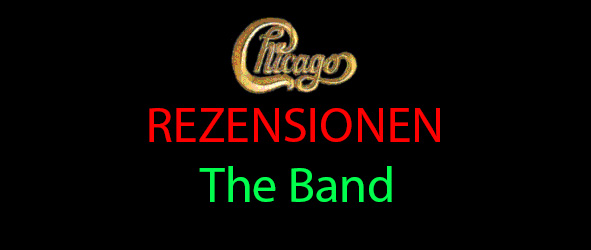
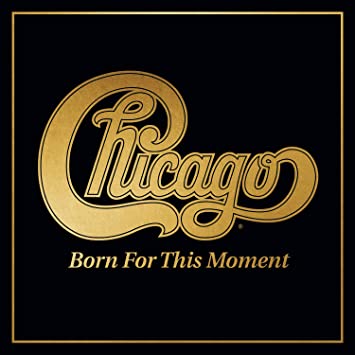 |
| CHICAGO XXXVIII "Born For This Moment" (2022) |
Ralf Dombrowski in "Stereoplay", 09/2022: Es ist Album Nummer 38 - einige Mitglieder der Urbesetzung von 1968 sind im Bläsersatz noch dabei. Einst war es neu, einen Hauch von Big Band mit Soul und Rock zu verknüpfen, inzwischen ist es längst ein eigener Stil, den Chicago nicht nur geprägt haben, sondern weiter verkörpern. Hardliner mögen monieren, dass Sänger Neil Donell nicht so nachdrücklich wirkt wie damals Peter Cetera, aber das ist eher ein Detail. Ansonsten klingt "Born for this Moment" exakt so, wie es soll, Musik mit Funk im Stammbaum, ein wenig Pathos, mit der Power einer Rockband mit dem Charme jazziger Bläser. Auf Doppelvinyl bassstark und zugleich transparent im Klang, stellt sich das Gefühl von damals ein, als man die Alben der Siebziger auspackte. Das nennt sich Nostalgie... Musik: 8 Punkte (von 10)
Ian D. Hall in "Liverpool Sound and Vision", 08/2022: Chicago: Born For This Moment. Album Review. However you may view life, its various ups and downs, its trials, tribulations, its fierce traditions, and its unexpected triumphs, we see the moments that pass us by and wonder what if, only to realise later on down the road that something else entirely was the reason that you were born to tackle, that you Born For This Moment. Such a statement might seem preposterous, perhaps even absurd in some cases, for the moment keeps coming, the experience of the continual motion that keeps the momentum of artistic intent well rewarded; and yet we must guard against such thinking, for in cases such as one of the most enduring and endearing of American bands, Chicago, the moment is one of seemingly, and gratefully, forever. It arguably comes down to the sporting analogy of rotation, rather than being entrenched in a crowd that stays together until all ideas are exhausted, or the sense of animosity and separation finds its way into the lyrics and music, the desire to continue beyond the core group is so overwhelming that like a comet speeding through space and the stars, it can only be stopped when the world gets in the way. Born for this moment, ready and willing to perform for all who listen with their hearts and their minds and who are still enthralled by the sheer magnitude of sound created in what is subtitled Chicago XXXVIII, the process of creativity is once again fulsome, full of flavour, and dynamic. Time may have removed the need for searing and fashionable vocal wielded by the gracious Peter Cetera or the gravity of the late and much missed Terry Kath, but that doesn’t mean the sound is anywhere near over, and across tracks such as If This Is Goodbye, Our New York Time, The Mermaid (Sereia Do Mar) Safe Harbours, Someone Needed Me The Most, If This Isn’t Love, You’ve Got To Believe, and the album title and lead track, Born For This Moment, the core survivors of the historic group, Robert Lamm, Lee Loughnane, and James Pankow, alongside the reliable and thoughtful players that have joined them for this album, Time is instead overwhelmed with the finesse that has seen the band stay at the top of the wide ranging arena since they first lit up the sky, studio wise, in 1969. A full rich sound, the earnest appreciation for a group that doesn’t understand the point of taking a back seat, Born For This Moment, ready for every occasion, for there is nothing finer than the sweet serenade of accomplished return, and for Chicago, for that rare combination of comprehensive and all-encompassing pleasure from instruments and groove that blend perfectly, the moment has once again smiled upon the listener. Ian D. Hall |
 |
| CHICAGO CHRISTMAS (2019) (2019) |
Scott D. Parker, 23. Dezember 2019, "scottdparker.blogspot.com" Chicago Christmas (2019) - The Best Surprise of 2019 One of my greatest listening pleasures for 34 years is to listen to a new Chicago album, especially without reading the liner notes so I can guess the singer. Cracked the seal on Chicago 37 back on 13 November 2019 and was richly rewarded by a group of consummate musicians using the vocabulary and trappings of Christmas to craft a great collection of songs. Those were the words I wrote on social media the day I first listened to this new Chicago album. I ended up listening to the new album three times that day. First time was in my car while on my morning commute. Other two times were in earbuds on my phone. Heard new things each time. Thoroughly enjoyed the experience, as I do for all new Chicago music. The Overall Sound But let's go ahead and address the elephant in the room: the production (or mix?) needs work. In the press release for this album, the guys mentioned how they'd practice the new tunes on the road and record in hotel rooms or on the bus. Look, I'm all for new music and if that's the way it works in 2019, fine. And I love that technology has advanced enough so this work ethic is possible. (Interestingly, over the month I've listened to the album, the initial sound issues I don't hear anymore. Maybe it's just repetition. Maybe I'm just used to it because when I purchased the LP yesterday--yes, I really own two versions of this album--I didn't notice the sound issue.) So, guys in Chicago, keep making new tunes, but make sure it's the best possible sound. The Songs Because It's Christmas Time - Robert Lamm lead. Opening similar to White Christmas, complete with piano playing eighth notes and jingle bells. Lamm's voice is muted and buried behind the instruments. Vocal harmonies with Lou Pardini and Neil Donell are nice and tight. Great sax solo by new member Ray Herrmann, but it fades way too soon. Wanted more. All Over the World - Neil Donell lead. This song counts as the first time I've heard Donell sing other than a few YouTube clips. Again, the vocals feel deeper in the mix, but the music is good. Love the electric piano. Really digging the first two tracks as they use the vocabulary and trappings of Christmas to craft new songs. It's certainly favoring the secular aspects of the season. This is also my first exposure to the bass playing of Brett Simons. He's really good here. Last chord is really nice and mysterious, not your typical Christmas vibe. Love how the bass mirrors the melody during the chorus. And the message is one that can be shared beyond the season. Bring My Baby Back - Donell lead. The opening is very Christmas-y, but the bass grove as the verse starts changes the mood entirely. In a good way. Horns during chorus reminds me of earlier Christmas records, especially with the high trumpet by Lee Loughnane. More sax on the outro by Herrmann. Really digging the album so far. I made most of my notes without seeing the liner notes so it's only later when I learn Nick Lane arranged the brass parts of this song. He certainly knows the Chicago sound. Merry Christmas, I Love You (R&B) - Lou Pardini lead. The direct sequel to Chicago XXXIII's "Merry Christmas Happy Holidays." All the feels and goofy grins on first hearing this tune on the morning commute. Cowbell back in the mix, and Keith Howland's guitar work is excellent. Pardini is a wonderful addition to the band. This is a tight band of consummate musicians performing these songs. So good. The horn work in the chorus is well done and worthy of the R&B moniker. Could easily see this song make its way on the various radio stations that play Christmas music 24/7. What the World Needs Now - Lamm lead. Okay, so my favorite thing about listening to a new Chicago album is to let it play and not read the liner notes. Really easy when the first listen was on a morning commute. When this song started and the 70s vibe kicked in, I was so there. But by the first chord change, I actually uttered a "friggin A" in the car as I grinned ear to ear. Guessed Lamm would be the one and I was right. The vibe is pure early 70s: think Marvin Gaye "What's Going On" or Miles Davis's "Maiysha." I'm not too familiar with the Carpenters but I know this tune. Lamm's voice again is way in the back, but his clear tone shines through. James Pankow's horn arrangements are tasteful and complimentary. You can actually hear all three horns. Am I the only one who would love Chicago to do a full album of Burt Bacharach songs? Chord progressions are magical. This song will find its way onto personal playlists and not just in the Christmas season. All is Right - Lamm and Donell and Pardini. The opening with flutes is nice, almost like Chicago is doing a Bacharach song again. Lamm opens with the verses but the lead shifts to Donell for the chorus. Goose bump moment there. So, so good. Third verse is Donell. Howland's guitar is gritty behind this easy going groove, punctuated by Ramon Yslas's nice percussion work. Pardini takes the last bridge which makes this tune one of the awesome triple-vocal songs in the entire catalog. The vibe this tune reminds me of is a 1978 Christmas TV special when the band is a guest. Again, the mysterious, minor-chord ending is surprising. Sleigh Ride [2019 version] - Donell lead. Nice groove and horn parts, but the backing vocalists doing the "ring-a-ling" thing? Icing on top of this sweet song. They absolutely make this song. Donell's vocals are so clear. Horn breaks are short and punchy. Ending sound effects are cheesy, but I'm a cheesy guy so I'm fine with it. The chimes as the song fades out is a nice touch. I'd Do It All Again (Christmas Moon) - Pardini lead. Bossa nova complete with shuffle drumming and piano embellishments? This song had me in the first measure. Simply a gorgeous song. Pardini's voice is perfect for this kind of song, and the horns just layer themselves with him, perfectly in the pocket with tasteful accents, especially as they re-enter after the piano solo. Goose bump song. A new jazz standard for others to hear and sing? You betcha. Not sure who plays the piano solo, but man is it good. Lots of Christmas music reminds me of childhood. This is one of those tunes where the vibe is that of adults in love. This is the song you'd have playing over scenes of a movie in which the couple frolic in the snow, fall down while ice skating, and snuggle up together in an open horse-drawn wagon in Central Park. Loughnane's muted trumpet is the icing on this song. In addition--and this doesn't happen too often in Christmas songs--this is the song you can easily see being played for senior citizens, as they look back on their lives. Only two songs this year made me emotional on first listen (and sometimes subsequent listens), and this is one of them. The other: Hello Sunshine by Bruce Springsteen. I'm Your Santa Claus - Pardini lead. Bass notes high on the fret board opening this funky song. Donell shines through in the group chorus. Man does he blend well. Pardini's piano is sprinkled throughout this song, as is Howland's rhythm guitar...until he takes a nice, crunchy solo. Even though this tune started soft, it ends as a pretty loud rock song, especially when Howland solos again, the distortion turned up. One of my favorite parts of the entire album is the group chorus on "This gift in silver and gold." Fantastic and goose bump inducing every time. Here We Come A Caroling - Donell lead. The timbales remind me of Chicago's version of "My Favorite Things" from Chicago XXXIII. Horn break is more complex than a typical Chicago horn riff. Can really hear Herrmann's alto sax. The sound of the horns is more "alive" than many a Chicago album. By that I mean you can all but hear the room as they record their parts, much like the horn sound of CTA is. Howland's crunchy guitar solo is a nice injection of rock and roll. Merry Christmas, I Love You (Ballad version) - The piano intro make this song come across like a ballad from the American Songbook, circa 1958. You know what marks a good song? The ability for it to be re-imagined and still ring true. In every Christmas season, the early part of my listening is always exciting because I get to hear this wonderful music after an eleven-month absence. I play all the happy, fun songs there. But in the final week, as Christmas Day grows near, I get a little somber and reflective. This version fits squarely in this latter pocket. Herrmann's sax solo is excellent. Gave me a Stan Getz vibe. The bells mirroring Donell's vocals at the close? Perfect. As the official end of the album, it is so good. The Verdict After fifty-two years as a band, thirty-seven albums, and my personal thirty-four years as a fan, I experienced something unexpected when I listened to Chicago Christmas 2019: it surprised me. For better or worse, when I listened to XXXIII for the first time, I could actually guess the horn breaks and musical choices. Ditto for Chicago XXX. Some of that is in play here, but not as much. Maybe it's my age (I'm fifty-one), maybe it's the more melancholy vibe to some of the songs, but Chicago Christmas 2019 hit me squarely in my heart. The holidays always are emotional, running the gamut from nostalgia of childhood to the more mature emotions of being a parent. Somehow, this collection of songs captures that spirit in an unexpected way. For the past twenty-one years, I have counted Chicago 25 as one of my favorite all-time Chicago albums. The reissued version--2003's What's It Gonna Be Santa--is always the first thing I break out every single Christmas season. Chicago XXXIII: O Christmas Three was a wonderful addition. Now comes Chicago: Christmas 2019 out of nowhere, filled with original songs and excellent music, by one of my two favorite bands of all time, that made the 2019 Christmas season so much better. Ever since June, I told everybody my favorite album of 2019 was already released. That would be Bruce Springsteen's excellent album, Western Stars. Well, while "Hello Sunshine" is still my favorite song, Chicago: Christmas 2019 is my favorite album of the year. |
 |
| CHICAGO XXXVI: "NOW" (2014) |
Laabs Kowalski 4. Juli 2014, "Classic Rock" Die Rückkehr von Anmut und Stil. Ein Album mit Weihnachtsliedern war das letzte, womit die legendäre Bläsergruppe, die sich 1967 unter dem Namen Chicago Transit Authority gegründet hatte, vor drei Jahren auf sich aufmerksam zu machen versuchte. Kein Wunder, das O CHRISTMAS THREE nicht unbedingt das war, was der Rockfan früher Stunde um jeden Preis haben muss. (Man stelle sich vor, die Stones brächten ein Weihnachtsalbum heraus.) Mit ihrem 36. Studiowerk kehren Chicago jedoch glanzvoll zu alter Größe zurück. Klar, dass uns auf XXXVIII (NOW) keine infernalischen Rockriffs begegnen. Das Talent jener Truppe, die als eine der ersten versuchte, Bläsersätze in den Rock zu integrieren, liegt seit den frühen 70ern, wie wir wissen, anderswo: Im stilvollen Softrock, den man bevorzugt dann auflegt, wenn es gilt, eine Frau davon zu überzeugen, dass man entgegen dem ersten Eindruck doch kein Tier ist und sich zu benehmen weiß. Von Beginn der 70er an bliesen Chicago höchst erfolgreich zum Sturm auf die Charts und erreichten Mitte des Jahrzehnts mit der Schmusehymne ›If You Leave Me Now‹ ihren ersten Zenit. Spätestens ab Mitte der 90er schien der Bläser-Gruppe jedoch die Luft auszugehen. Jetzt wollen es Oberhaupt Lee Loughnane und seine Mitstreiter jedoch noch einmal wissen. „Ich hab’ das Gefühl, uns ist noch einmal ein Album für die Ewigkeit gelungen“, sagt Loughnane stolz im Interview und liegt damit gar nicht so falsch. Schon der Opener ›Now‹ überzeugt vom ersten Augenblick an, strahlt edel und beamt den Hörer – trotz seines anders lautenden Titel – um drei Jahrzehnte zurück, in eine Ära, als Global Player und Banken wenigstens noch vorgaukelten, ihr Handeln wäre sozialverträglich. „If there’s something you wanna say then say it now“, startet der Text, und wie es scheint, haben die vier Urmitglieder Lee Loughnane, Robert Lamm, James Pankow und Walter Parazaider sowie ihre Weggefährten noch eine Menge zu sagen, in ›America‹ und dem arabisch eingefärbten ›Naked In The Garden of Allah‹ zum Beispiel. Selbstverständlich sind die elf neuen Songs nicht sämtlich politische Statements, Songtitel wie ›Nice Girl‹ und ›Free At Last‹ deuten es an. Überraschend ist jedoch die elegante Lebendigkeit, die jedes Stück entwickelt: ein Album wie ein Sonnenstrahl. Dass es in diversen Hotelzimmern eingespielt wurde, während die Band unterdessen wie immer auf Tour war, hört man ihm nirgendwo an. Chicago steht drauf. Chicago ist auch drin. Und dazu ein Sound, in den man sich wie in einem Polstersessel zurücklehnen kann. Chapeau, meine Herren!
Jeb Wright in "Classic Rock Revisted", 2014: Chicago kehren mit ihrem 36. Album zurück, das elf brandneue, eigene Songs enthält. Dies ist eine Rückkehr zu ihrem horngetränkten, souligen Sound der frühen 1970er Jahre, der sie zu internationalen Rockstars machte. Interessanterweise betrat die Band bei der Entstehung des Albums kein Aufnahmestudio. Das Ganze wurde auf dem von der Band "The Rig" genannten System aufgenommen, einem maßgeschneiderten mobilen Aufnahmesystem. Die Band nahm in Hotels, Veranstaltungsorten, Konferenzräumen und überall dort auf, wo sie sich aufstellen und die Magie verwirklichen konnte. Herausgekommen ist ein sehr persönliches und leidenschaftliches Album. Die Songs halten alle zusammen und jeder ist sehr stark. Heute besteht Chicago aus Robert Lamm (Keyboard, Gitarren, Gesang), Lee Loughnane (Trompete, Gitarre, Percussion, Gesang), James Pankow (Posaune, Perkussion, Keyboards, Gesang), Walter Parazaider (Holzbläser, Backing Vocals) sowie Jason Scheff (Bass, Gesang), Tris Imboden (Schlagzeug, Perkussion), Keith Howland (Gitarre, Gesang), Lou Pardini (Keyboards, Gesang) und Walfredo Reyes Jr. (Perkussion). Gründer Robert Lamm fasste das Projekt mit den Worten zusammen: "Es gibt sicherlich mehr Kontext, und es gibt sicherlich mehr musikalische Fähigkeiten und Wahrnehmung, anstatt der jugendlichen Naivität, die wir hatten, als wir anfingen." Auch Trompeter Lee Loughnane kommentiert: "Gott sei Dank haben wir 46 Jahre Erfolgsgeschichte hinter uns. Wir versuchen einfach, das Vermächtnis noch weiter auszubauen." Das Vermächtnis wird weitergeführt. Der Titeltrack "Now" ist klassisch Chicago und gehört mit Leichtigkeit zu den besten ihrer klassischen Songs. Der Song eröffnet das Album und beweist, dass diese Band nicht nur immer noch gefährlich talentiert ist, sondern auch einen Platz in der Rock and Roll Hall of Fame mehr als verdient hat... die sie weiterhin übersieht. Die Musik auf diesem Trottel ist durchweg erstklassig. Bei "More Will Be Revealed" übernimmt Lamm die Lead-Vocals und er glänzt einfach durchweg. "America" ist eine weitere klassisch klingende Melodie. "Free At Last" ist eines der besten der Reihe, da es Elemente von Jazz, Rock, Soul und dem besonderen Chicago enthält - etwas, das diese Band all die Jahre rocken ließ. Das ist ein großartiges Album. Die Band wird mit REO Speedwagon auf Tour gehen, um dieses Album zu unterstützen. Das ist eine so gute Veröffentlichung, dass sie wirklich so viele wie möglich in das Live-Set passen sollten... auf jeden Fall "Jetzt" und "Endlich frei"... Diese Songs wären damals große Hits für die Band gewesen, und sie verdienen es, gehört zu werden... jetzt! |
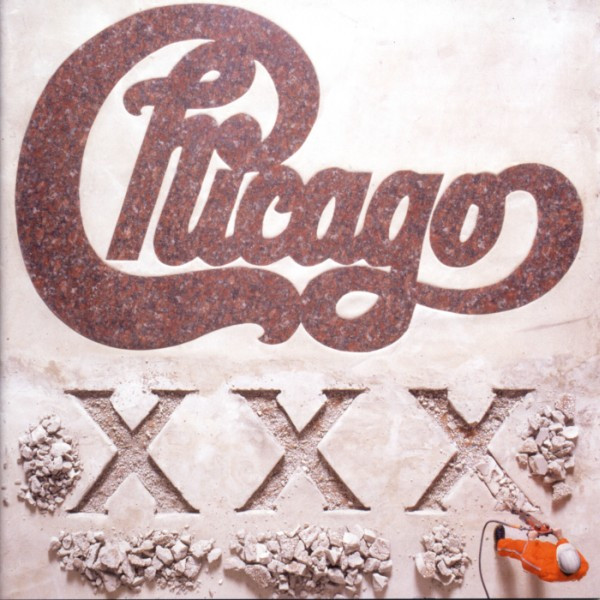 |
| CHICAGO XXX (2006) |
M. Breiners in "Stereoplay", 05/2006: Die ersten Takte des Openers erschrecken, denn Chicago beginnen auf Album
Nr. 30 etwas tranig. Bewertung: (max. 10 Punkte)
Christof Hammer in "Audio", 05/2006: Die (Jazz) Rock-Institution aus der „windy city“ macht wieder mächtig Wind: „XXX“ steht ganz im Zeichen veritabler Bläser-Power, der brave Mainstream-Pop der „Hard To Say I'm Sorry“- Ära ist gänzlich weggepustet. Derart keck renoviert, macht der Chicago-Sound wieder richtig Spaß, auch dank meist manierlicher Songs. Nur die arg in die Jahre gekommene Stimme von Chefvokalist Robert Lamm kreischt derart im Ohr, dass man froh ist, wenn die übrigen Kollegen als Begleitsänger assistieren. Fazit: Sehr ordentliches Spätwerk Bewertung Musik: 3,5 Punkte (von 5)
Uwe Schleifenbaum in "Stereo", 06/2006: Chicago, das war mal eine wilde Rockband mit stürmischem Gebläse, ein Garant für jazzige Improvisationen. Bewertung:
laut.de-Kritik, 06/2006: Die amerikanische Band präsentiert auf "XXX" sauber eingespielten und beseelten Mainstream der besseren Sorte. Das muss kein Schimpfwort sein; eine gut produzierte Mainstream-Scheibe unterhält allemal mehr als eine vor (vermeintlichem) Anspruch lähmende und nervende Indie-CD. Der gut abgehangene Mix aus unterschiedlichsten stilistischen Einflüssen unterhält den Normalo wie auch eingeschworene Chicago-Fans ganz prächtig. "Feel" (gleich in zwei Varianten vorliegend) eröffnet im Radio-Mix ein ausgewogenes Pop-Rock-Album, das neben stimmigen Arrangements mit ausgefeilten Melodien punktet. Der Opener kommt als gefühlsstarke Rockballade daher. "King Of Might Have Been" überzeugt mit starken Harmonien, Streichern, Chorgesang, dezentem Cello und differenzierter Beat-Untermalung durch Drummer Tris Imboden. "Why Can't We" gefällt mit seinen energischen Backbeats und den einschmeichelnden Parts von Gastsängerin Stella Fairchild. Ein besonderes Highlight ist der Titel "90 Degrees And Freezing". Hier zeigen sich Chicago in Bestform: Die Beats und scharfen, effektvollen Bläsersätze laden zu weitaus mehr als nur wohlwollendem Mitwippen ein. Rock,- Funk,- Heavy- und Jazz-Elemente verbinden sich zu einem eindrucksvollen Mainstream-Crossover. Das perlende Piano verschickt sympathisch-entspannte Grüße an die Kollegen von Toto. "Where Are You" besticht mit feiner Chorus-Arbeit. Elegante Pop-Passagen dominieren "Already Gone" ebenso wie "Come To Me, Do". "Better" zaubert beschwingt Abwechslung mit leichtfüßigem Swing und einer guten Prise Blue-Eyed-Soul. Ein oft präsenter 70er-Westcoast-Appeal und punktgenau in die Songs eingebettete, nie zu lange Gitarren-Soli bieten zusätzliches Hörvergnügen in den Songs auf "XXX". Chicago sind nicht die belanglosen Mainstream -Schnulziers, in die sie wegen ihrer großen Balladen-Hits wie "Hard To Say I'm Sorry" manch vorschnell urteilender Musikfreund einsortiert. Sie haben dank einer fast vierzigjährigen Band-Erfahrung erheblich mehr drauf und zeigen sich als in ihrem Metier oft als konkurrenzlos aufspielende Rock-Big-Band. Die kompositorische Klasse auf "XXX" erinnert in einigen Passagen ("King Of Might Have Been", "Why Can't We") angenehm an die Klasse-Arbeiten von Jim Steinman für Meat Loaf. Aber statt auf Balladen-Übermaß wird in erster Linie auf den Bereich 'leicht erhöhtes Midtempo' mit gelegentlichen Ausbrechern nach vorn gesetzt. Selbst ein paar wenige unspektakuläre Song-Füllsel wie etwa "Love Chains" mindern den positiven Gesamteindruck kaum. Der Jazz-Anteil, der besonders die frühen Chicago auszeichnete, ist auf "XXX" freilich überschaubar. Aber er verleiht dem Album an den richtigen Stellen die nötige Würze. Satte Bläser, akzentuierter Close-Harmony-Gesang, abwechslungsreiches Songwriting, vielseitige Arrangements – der jahrzehntelang ausgefeilte Chicago-Sound ist überzeugend in der Jetztzeit angekommen. |
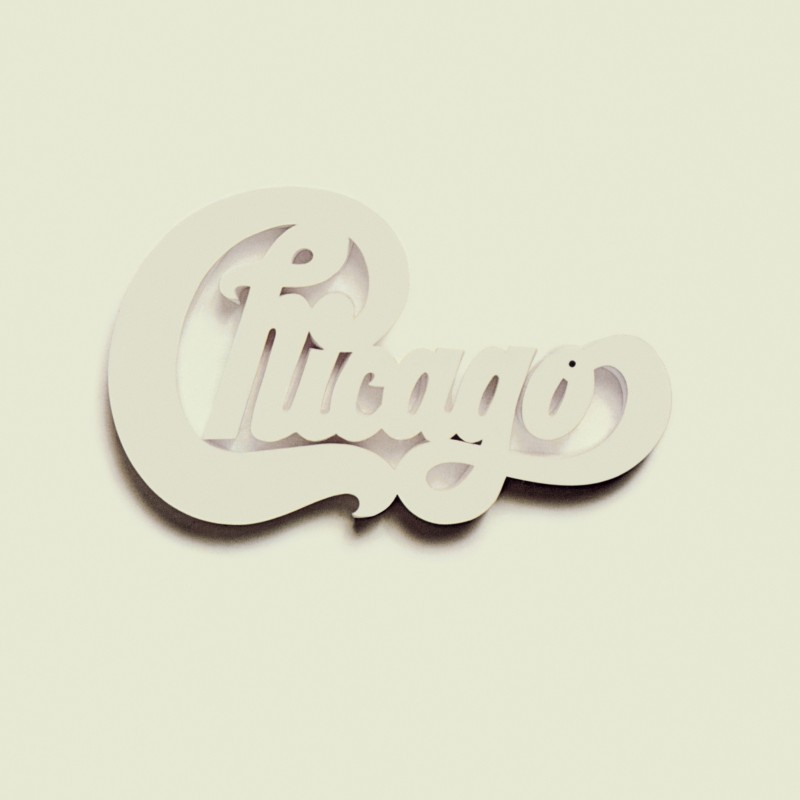 |
CHICAGO AT CARNEGIE HALL |
Willi Andresen in "Stereoplay", 12/2005: 1971 rockten Chicago sechs Mal in Folge die Carnegie Hall in NYC. Das Septett spielte damals neben Blood, Sweat & Tears die kompakteste Jazz-Rock-Fusion. Der Mitschnitt erschien 1972 auf vier LPs, vor einigen Jahren als 3-CD-Ausgabe und nun als 4-CD-Box. Alle 32 Original-Songs wurden digital remixed und remastert. Die Bonus-CD mit acht unveröffentlichten Songs ("Listen") oder Alternativ-Versionen ("25 or 6 to 4") liefert 45 zusätzliche Minuten. Erstaunlich: Chicago von 1971 klingen 2005 immer noch frisch und powervoll. Bewertung: (max. 10 Punkte) |
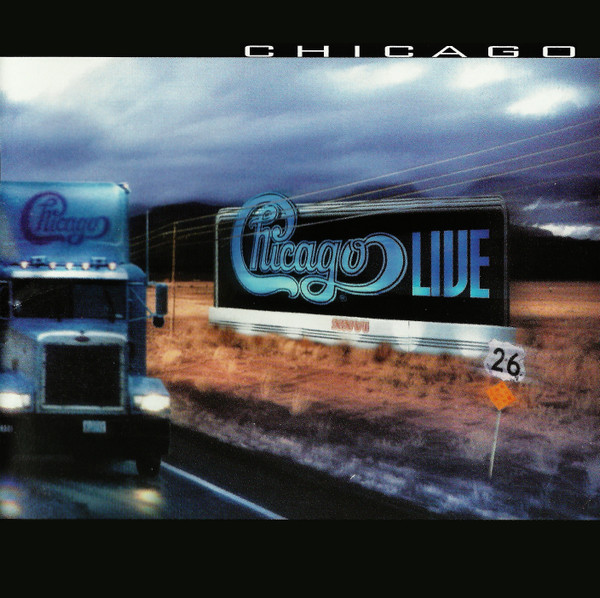 |
| CHICAGO 26 - Live In Concert (1999) |
Denise Sullivan "All Music Guide" 1/2000: Perhaps a Chicago live
album sounds terribly unfashionable. Indeed, the band fell into
decline in the early '90s, but by decade's end, the hit-making
group known for its horn charts and high harmonies was in
fighting shape, as this live set will attest. Four of the six
original members are here, and they cook up some delicious sounds
from the group's early history -- a stunning "Seachin' So
Long," a convincing "Call On Me," a suitably
dramatic "Just You 'N' Me," and a solid
"Beginnings." Later material like "Hard Habit to
Break" is here, but, wisely, the late '80s material was left
out of the final mix. Sadly, the new material, produced by Roy
Bittan, doesn't have any bite, and an appalling cover of Jackie
Wilson's "Higher and Higher," sung by Doobie Brother
Michael McDonald, closes the show. Bewertung: 3 Sterne (Good) |
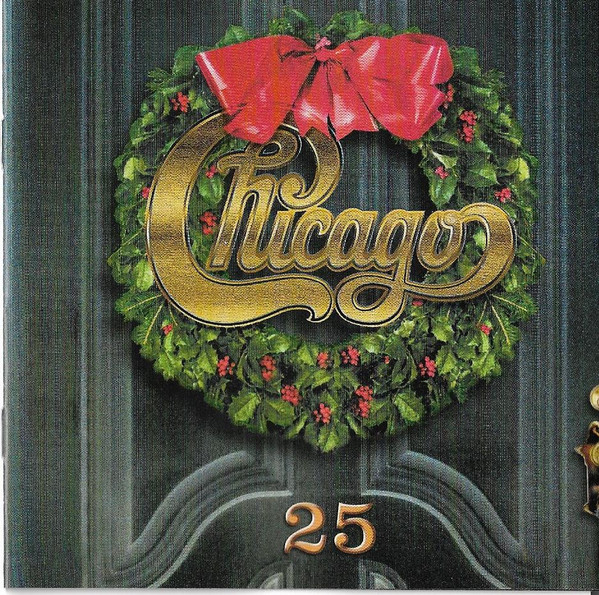 |
| CHICAGO 25 - The Christmas Album (1998) |
William Ruhlmann "All Music Guide" 12/1999: When Chicago first achieved national recognition in the late 1960s and early '70s, it wasn't hip for rock bands to make Christmas albums. Things changed, of course, but it took until 1998 for Chicago finally to fill this missing item in its catalog, at a time when the group seemed to have entered that phase of its career when it wanted to keep putting out records but didn't want to risk releasing new material. (Chicago's three previous releases had consisted of an album of big band standards and two greatest hits sets.) Whatever the circumstances, however, it was good to hear the Chicago style applied to seasonal standards. As ever, the group was a cooperative unit, with the three lead singers-Bill Champlin, Robert Lamm, and Jason Scheff-taking turns on the different songs, arranged by various band members and always allowing for generous contributions by the horn players Lee Loughnane, James Pankow, and Walt Parazaider. The songs were all seasonal favorites except for Loughnane and John Durrill's "Child's Prayer, " featuring a choir dominated by the musicians' children, which sounded so much like a Middle Ages English hymn that it fit right in. Highlights included a particularly moving vocal on "Have Yourself A Merry Little Christmas" by the gruff-voiced Champlin, a wonderful doubled flute passage by Parazaider on "O Come All Ye Faithful, " and a rare lead vocal by Loughnane on "Let It Snow! Let It Snow! Let It Snow!" But the whole album, pristinely produced by E Street Band pianist Roy Bittan, was well performed. It sounded exactly like you would expect a Chicago Christmas album to sound, and if you liked the band and holiday music, you'd like the record, too. (800-552-5624, www.chirecords.com) Bewertung: 3 Sterne (Good) |
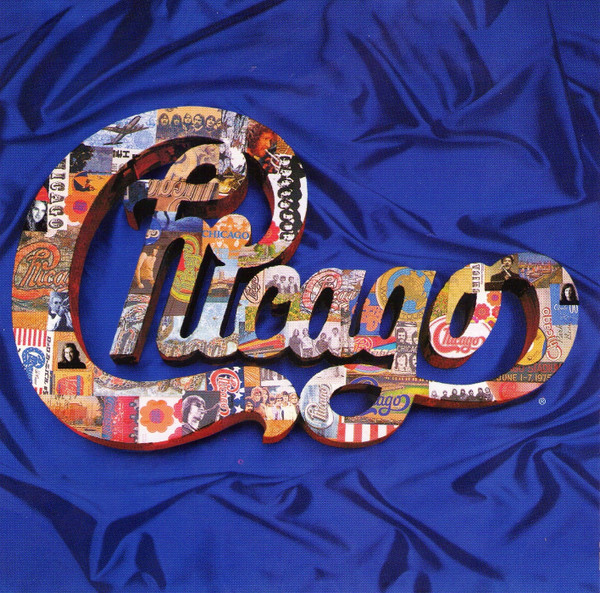 |
| THE HEART OF CHICAGO 1967 - 1998 - VOL. 2 (1998) |
Stephen Thomas Erlewine "All Music Guide" 12/1999: The Heart of Chicago 1967-1998, Vol. 2 follows the pattern of its predecessor by offering an arbitrary selection of hits -- "Love Me Tomorrow, " "Baby, What A Big Surprise, " "What Kind of Man Would I Be, " "Stay the Night, " "25 or 6 to 4" -- augmented by a couple of lackluster new recordings. It isn't a terrible way to get some good songs, but truth be told, the original greatest-hits albums are a far better bet for casual fans, and hardcore followers aren't going to be thrilled with buying this disc for a couple of OK cuts. 5 Sterne (Best Of Artist) "The Heart Of Chicago 1967-1998, Vol. 2" folgt genau dem Muster seines Vorgängers mit einer beliebigen Auswahl von Hits: "Love Me Tomorrow", "Baby, What A Big Surprise", "What Kind of Man Would I Be", "Stay the Night", "25 or 6 to 4" -- erweitert von einem paar neuer glanzloser Songs. Es ist kein schlechter Weg, einige gute Songs zu bekommen, aber um die Wahrheit zu sagen, die Original "Greatest-Hits"- Alben sind eine viel bessere Auswahl für zwanglose Fans, und "Hardcore-Anhänger" werden auch nicht gerade dazu angeregt werden, für ein paar "OK-Cuts" diese Scheibe zu kaufen. Bewertung: 5 Sterne (Best Of Artist) |
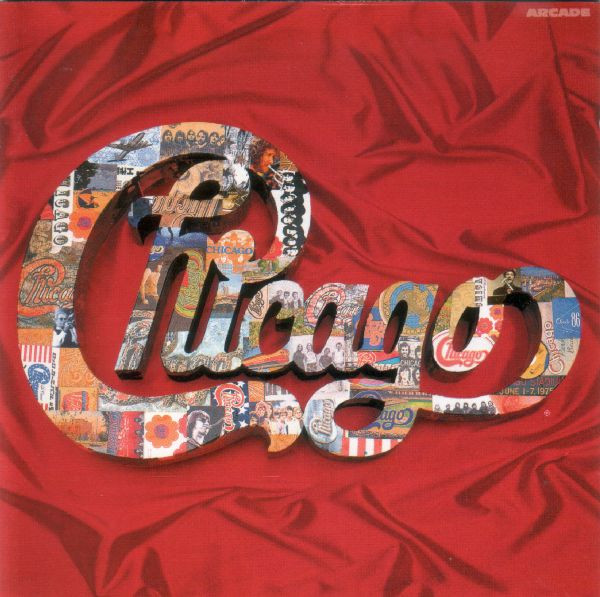 |
| THE HEART OF CHICAGO 1967 - 1997 - 30th. Anniversary (1997) |
Stephen Thomas Erlewine "All Music Guide" 12/1999: Heart of Chicago 1967-97 is a cheap way to celebrate Chicago's 30th anniversary. It features 13 arbitrarily picked hits from throughout the band's career -- from "Saturday in the Park" and "Does Anybody Really Know What Time It Is" to "If You Leave Me Now," "You're the Inspiration," "Hard to Say I'm Sorry" and "Look Away" -- and adds two new tracks, the Lenny Kravitz-produced "The Only One" and "Here In My Heart," which was co-written by Glen Ballard and James Newton Howard. Although Chicago has enlisted heavy hitters for the new tracks, both fall flat. And as a thorough hits collection, Heart of Chicago 1967-97 is unsuccessful as well, since it omits such hits as "25 or 6 to 4" and "Baby, What a Big Surprise," yet works well as sampler for casual fans, since it has only the biggest hits. 3 Sterne (Good) “The Heart of Chicago 1967-97” ist ein preisgünstiger Weg, Chicago’s 30. Jubiläum zu feiern. Es enthält 13 beliebig ausgewählte Hits der Band-Karriere - von "Saturday in the Park" und "Does Anybody Really Know What Time It Is" bis hin zu "If You Leave Me Now," "You're the Inspiration," "Hard to Say I'm Sorry" und "Look Away" - hinzugefügt wurden auch zwei neue Tracks, das von Lenny Kravitz produzierte "The Only One" und "Here In My Heart", welcher von Glen Ballard und James Newton Howard zusammen geschrieben wurde. Trotz aller dieser Anstrengungen fallen beide Songs relativ flach aus. Für eine gründliche Hit-Sammlung ist “The Heart of Chicago 1967-97” ebenso erfolglos, weil es solche Hits wie "25 or 6 to 4" und „Baby, What a Big Surprise“ auslässt. Als Sampler für zwanglose Fans ist diese Scheibe eher geeignet, da sie nur die größten Hits enthält. Bewertung: 3 Sterne (Good) |
 |
| OVERTIME (1996) |
William Ruhlmann "All Music Guide" 12/1999: In 1995, Chicago gained the rights to its recordings of the 1960s and '70s originally released on Columbia Records, and the group not only formed Chicago Records to reissue the material, but also made licensing deals internationally. One result is this 24-track, 95-minute Canadian double-CD collection, which contains every Top 40 hit Chicago achieved between 1969 and 1979. Two of those songs, "Dialogue" and "Saturday In the Park," are presented in live recordings made in Japan in 1972; the rest are the original studio recordings. The tracks boast a notably superior sound quality to that found on the old Columbia CDs, doubtlessly because the group went back to the original master tapes. But the real bonus here for Chicago fans is two recordings, "Bigger Than Elvis" and "Stone of Sisyphus," adrawn from the group's unreleased 1993 album Stone of Sisyphus, which was rejected by Warner Bros. The former is bassist/singer Jason Scheff's heartfelt reflection on his father, Elvis Presley sideman Jerry Scheff, and is in the power ballad style of so many Chicago hits -- it's unbelievable that a song this good has not been heard until now. The latter is also an excellent song penned by trumpeter Lee Loughnane and former Chicago guitarist DeWayne Bailey. If the rest of Stone of Sisyphus is of a similar quality, then it may be one of the better lost albums in rock history. -- William Ruhlmann, All Music Guide Bewertung: 5 Sterne (Best Of Artist) |
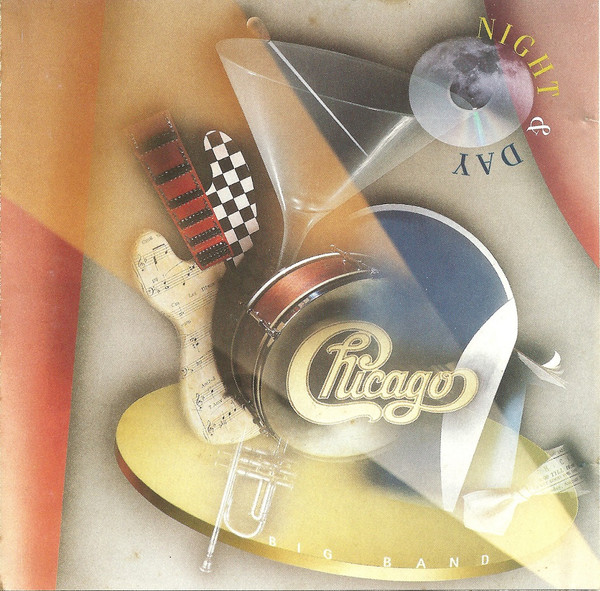 |
| NIGHT & DAY - BIGBAND (1995) |
Harald Kepler aus "Stereo" 8/1995: Viele
Mitglieder von Chicago haben vor der Rock-Laufbahn ihre Brötchen
in den Jazzorchestern von Bill Russo, Woody Herman etc. verdient
(was vermutlich nur wenige ihrer Fans wissen). Jetzt erinnern
sich die Musiker an ihre Ursprünge im Swingjazz zurück. Deutscher "Rolling Stone" Ausgabe 7/1995: Solange
Chicago in Jazz-Rock und Soft-Pop machten, taten sie nicht weh.
Auf "Night & Day" vergreift sich das
Handwerker-Ensemble aber unter Mitwirkung des
Letterman-Keyboarders Paul Schaffer und der faden Gipsy Kings an
Big-Band-Klassikern wie "Take The 'A' Train" und
"Caravan": charakterlos. Frank Berktold aus "Hifi-Vision" 8/1995: Nicht nur mit
Cole Porters "Night & Day" erweisen Chicago diesmal
den Big Bands der Swing-Ära ihre Referenz. Duke
Ellington-Evergreens wie "Caravan", "Take The 'A'
Train" oder "Sophisticated Lady" interpretiert die
bläserstarke Soul-Combo lässig groovend und mit energischer
Rock-Muskelkraft. Uwe Schleifenbaum aus "Musikexpress/Sounds" 7/1995: Oh mein Gott,
offenbar ist der letzte Yuppie doch nicht mit dem
Dollar-Tiefstand von uns gegangen. Denn für irgendwen muß diese
Platte ja gedacht sein, Marketingabteilungen großer
Plattenfirmen können doch schließlich nicht beidhändig ins Klo
greifen. Jazzfans dürfte bei dieser aalglatten, weichgespülten
Dinner-Auflage alter Bigband-Standards jedenfalls der Appetit
gründlich vergehen, Freunde der Rockmusik tendieren
wahrscheinlich zu noch drastischeren Verstimmungen im
Magen/Darm-Bereich. Und was bleibt? Unterbrochen von der Ansage
"heute im Angebot: 100 Gramm Schweinehack nur 4.99", "Audio" 8/1995: Die
Bläser-Rocker Chicago feiern auf Night & Day die Ära
der Big Bands. Cole Porters Night & Day gab den Titel her,
dazu Standards von Duke Ellington (Caravan), Glenn Miller (In The
Mood) und Benny Goodman (Sing, Sing, Sing mit den Gipsy Kings) -
eine erstaunlich erquickende Scheibe von Rock bis Swing. |
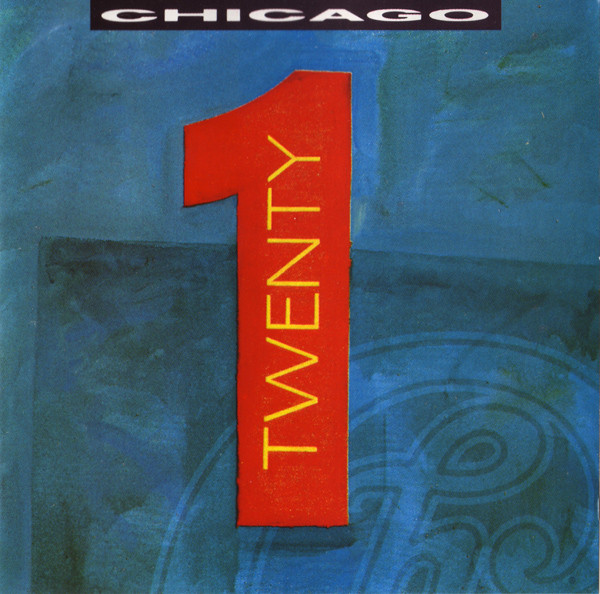 |
| CHICAGO Twenty 1 (1991) |
William Ruhlmann "All Music Guide" 12/1999: The '90s found Chicago's lineup minus drummer Danny Seraphine, but with guitarist DeWayne Bailey, who had been a sideman, a full-fledged member. It also found the group at the closest thing to a career crisis in a decade. This album sold poorly and spun off only one Top 40 hit, "Chasin' the Wind," despite containing some typical, if not outstanding, material in tunes like "You Come to My Senses" (which belatedly scaled the AC chart) and "Explain It to My Heart." Clearly, a new approach was in order. Bewertung: 2 Sterne (OK) |
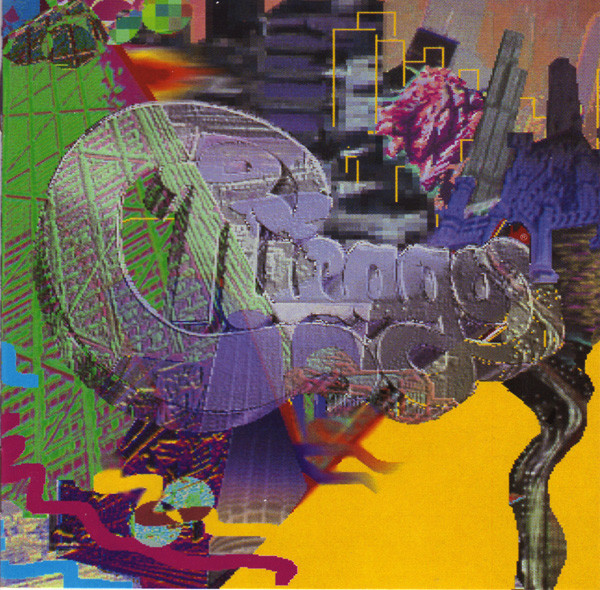 |
| CHICAGO 19 (1988) |
William Ruhlmann "All Music Guide" 12/1999: This album contained four Top Ten hits, "I Don't Wanna Live Without Your Love," "Look Away" (which hit #1), "You're Not Alone," and "What Kind of Man Would I Be?," andyet did not reach the Top 10 on the album list, definite proof that Chicago was reaching an easy-listening (or "Adult Contemporary") radio audience but missing the rock audience. It paid the bills, though. Bewertung: 2 Sterne (OK) |
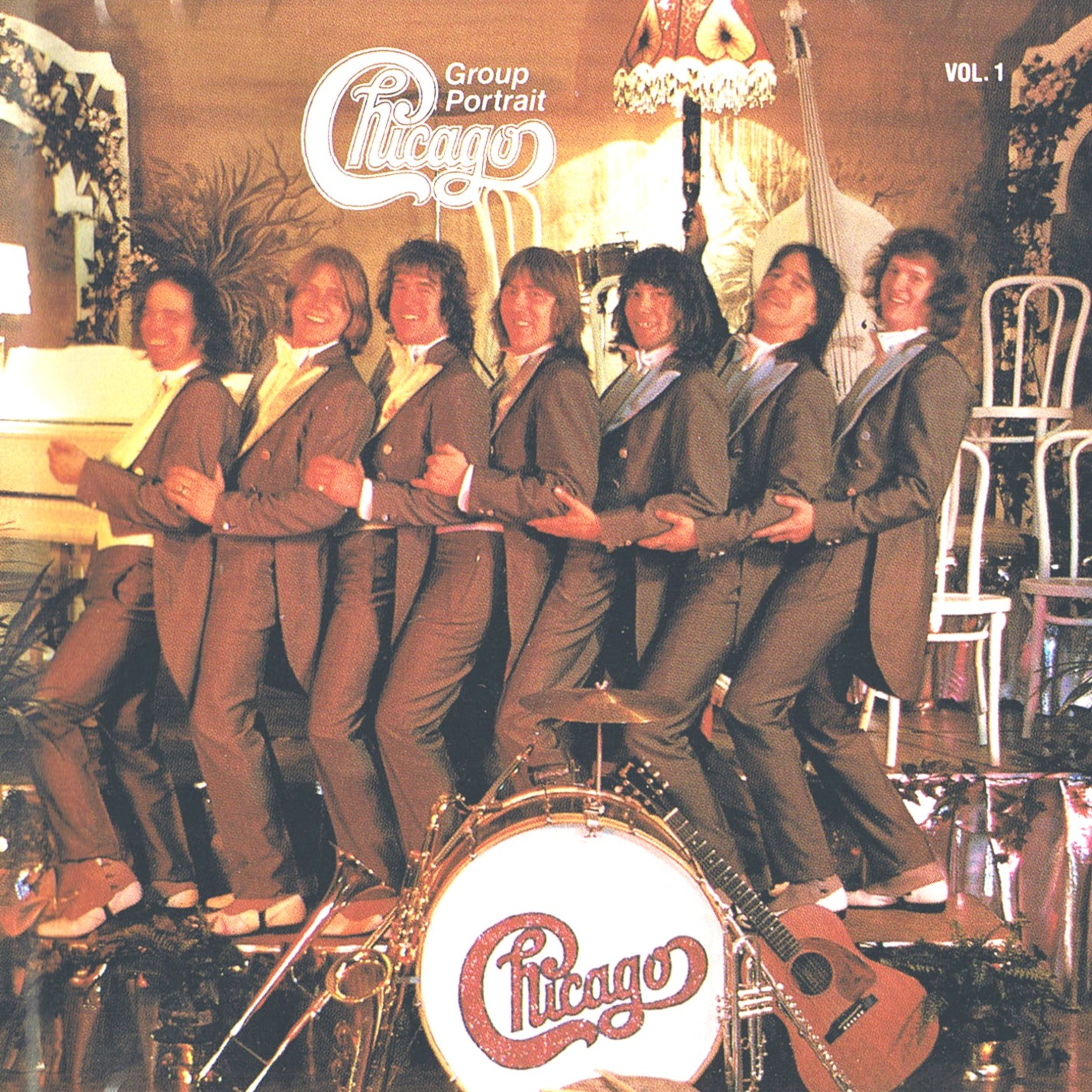 |
| GROUP PORTRAIT (1986) |
Rick Clark "All Music Guide" 12/1999: If the two Greatest Hits collections don't look like adequate places to go, yet you want to have some Chicago in your collection, then Group Portrait is an extremely comprehensive boxed set that chronicles all the hits and important album tracks. You'll probably never find a more complete history on the band than that provided in the set's booklet. Bewertung: 5 Sterne (Best Of Artist) |
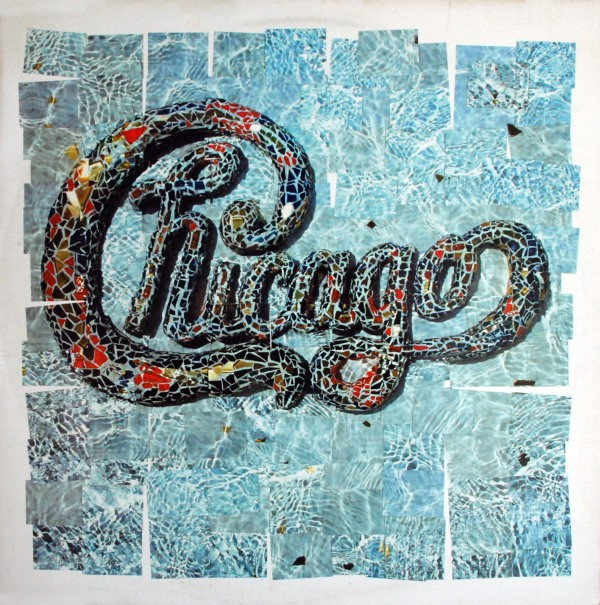 |
| CHICAGO 18 (1986) |
William Ruhlmann "All Music Guide" 12/1999: It is an article of faith in corporate lore that everyone is expendable, and Chicago Music, Inc., responded to the departure of Peter Cetera by hiring another blonde, bass-playing tenor with sex appeal in the person of Jason Scheff. Some people were fooled, especially by the power ballad "Will You Still Love Me?," but others weren't (the album stopped at gold), and longtime fans were dismayed at the re-recording of "25 or 6 To 4". Bewertung: 2 Sterne (OK) |
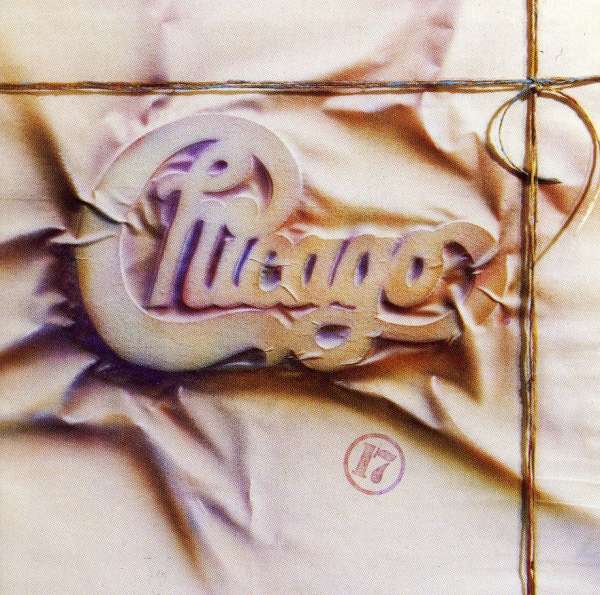 |
| CHICAGO 17 (1984) |
William Ruhlmann "All Music Guide" 12/1999: With sales of four million, this is the biggest-selling regular studio album Chicago has made. That's what happens when you really go for the ballads: "Stay the Night," "Hard Habit to Break," "You're the Inspiration," and "Along Comes a Woman" all fit into that category; all featured Peter Cetera, and all made the Top 40. Not surprisingly, Cetera decamped soon after. Bewertung: 3 Sterne (Good) |
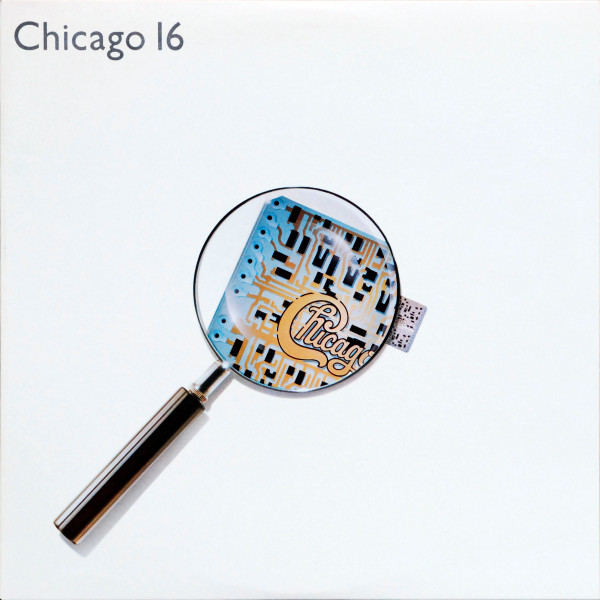 |
| CHICAGO 16 (1982) |
William Ruhlmann "All Music Guide" 12/1999: With its back to the wall, Chicago switched record labels, dropped Donnie Dacus in favor of Bill Champlin (of the Sons of Champlin), brought in producer David Foster as new Svengali, and went back to power ballads. And it all worked, at least commercially. "Hard to Say I'm Sorry" was the summer ballad of 1982, the album went Top Ten, and Chicago was back in business, albeit with far more limited musical goals than it had had at the beginning. Bewertung: 2 Sterne (OK) |
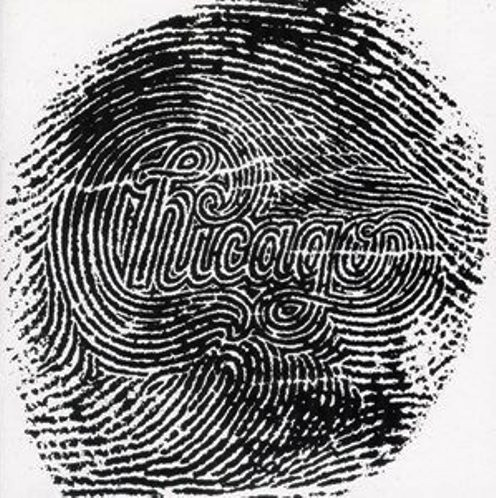 |
| CHICAGO XIV (1980) |
William Ruhlmann "All Music Guide" 12/1999: Peter Cetera's "Song For You" has charm, and Robert Lamm's "Manipulation" has a certain punk edge. At another time, on another album, either might have worked, if they were redone properly. The rest is dross, and the best you can say is that at least Chicago had touched bottom. Bewertung: 1 Stern (Poor) |
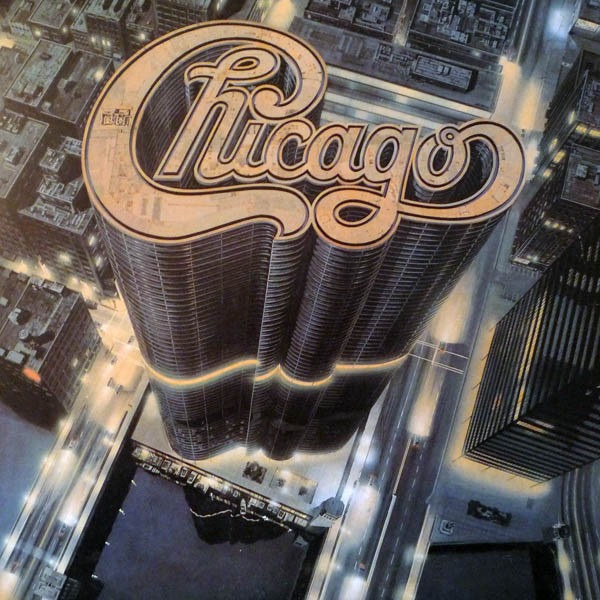 |
| CHICAGO 13 (1979) |
William Ruhlmann "All Music Guide" 12/1999: Disaster
strikes. Chicago tries to go disco with "Street
Player"; new guitarist Donnie Dacus gets his own single with
"Must Have Been Crazy" (it flopped); Bewertung: 1 Stern (Poor) |
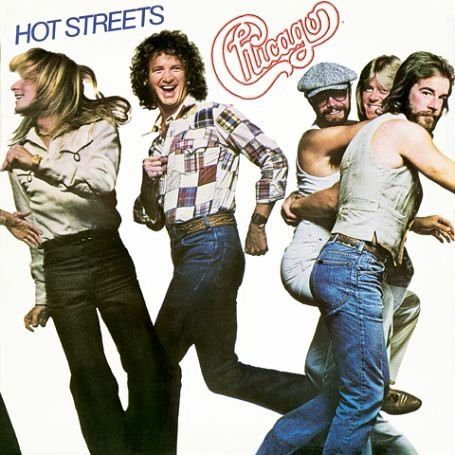 |
| HOT STREETS (1978) |
William Ruhlmann "All Music Guide" 12/1999: Chicago had a new producer in Phil Ramone, a new guitarist in Donnie Dacus, a real album title, and their picture on the cover here, all of which seemed to spell a new beginning for the group. But despite two Top 15 hits with "Alive Again" and "No Tell Lover," this was Chicago's first album to miss the Top 10; it did not mark the rejuvenation Chicago and its fans hoped it would. The album remains the black sheep in Chicago's catalog. When CDs came in, the group declined to have it issued in the new medium, so it went out of print. When Chicago acquired the rights to its Columbia Records albums in 1995 and reissued them on its own Chicago Records imprint, it again skipped Hot Streets, though it did leave a catalog number (12) available, in case it changed its mind. 2 Sterne (OK) |
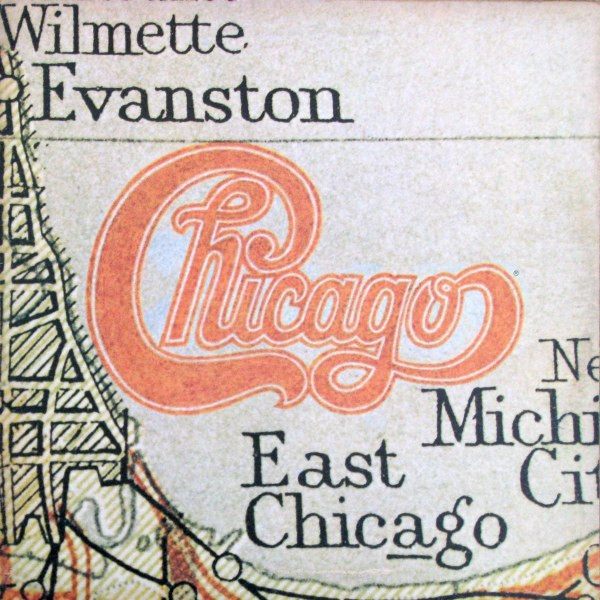 |
| CHICAGO XI (1977) |
William Ruhlmann "All Music Guide" 12/1999: On its last album to be produced by James William Guercio and to feature guitarist Terry Kath, Chicago turns in another competent but unremarkable effort. Peter Cetera's "Baby, What a Big Surprise" is his follow-up to "If You Leave Me Now," and Robert Lamm continues to wax political on "Policeman" and "Vote for Me," and "Take Me Back to Chicago" accurately expresses an exhausted band's sentiments at this point. Bewertung: 2 Sterne (OK) |
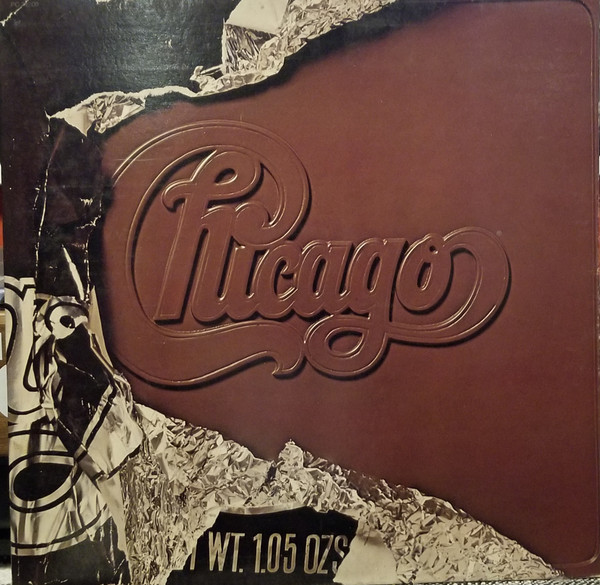 |
| CHICAGO X (1976) |
"Sounds"
1976: |
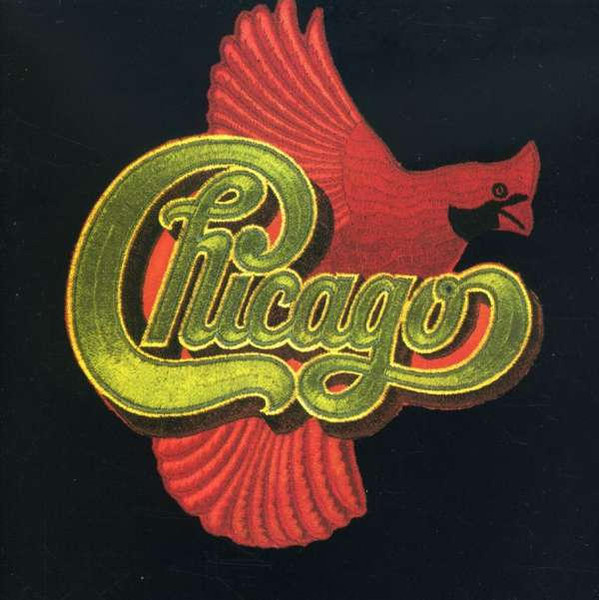 |
| CHICAGO VIII (1975) |
Jogi aus "Sounds" 1975: From Deep In
The Glitzy Heart Of Las Vegas in Eure lokale Tanzdiele: Chicago. |
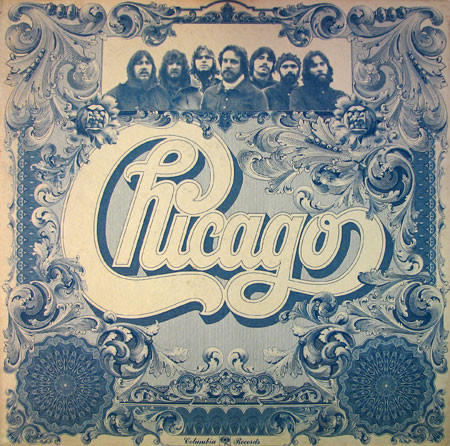 |
| CHICAGO VI (1973) |
Jogi aus "Sounds" 1973: Also auf
"Feeling Stronger Every Day" steh' ich, da fangen meine
Ohren an sich zu kräuseln, da schlägt der kleine Mann im Ohr
Rad, das könnt' ich 24 Stunden rund um die Uhr hören. Hui, das
ist ein Stück Blas-Rock nach meinem Geschmack. Ich hör's gerade
zum siebten Mal mit Kopfhörern. (Dabei noch schreiben, das ist
verdammt: schwierig.) |
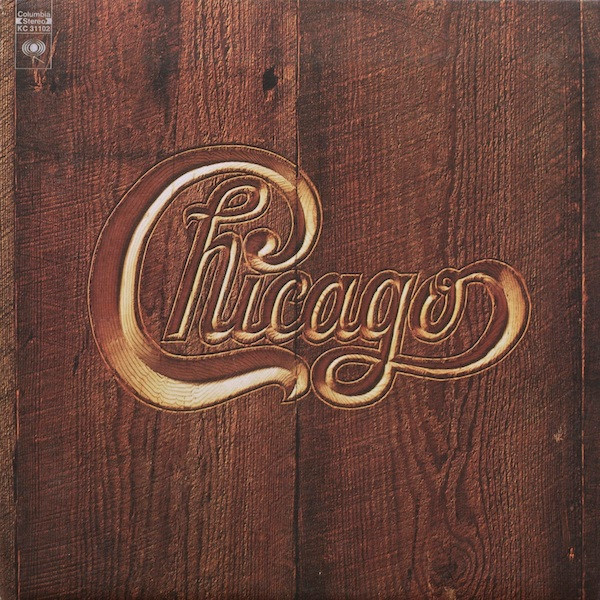 |
| CHICAGO V (1972) |
Hans-Jürgen Günther aus "Sounds" 1972: Nach drei
Doppelalben und einer Live-Kassette mit sogar vier LP's erscheint
Chicago's fünfte Produktion umfangmäßig eher ein bißchen
mickrig; nur eine LP befindet sich im aufwendigen Cover. |
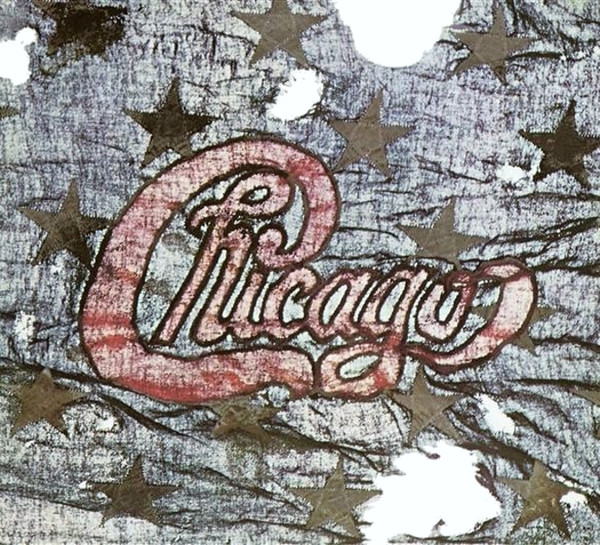 |
| CHICAGO III (1971) |
"Sounds" 1971: Auch auf
ihrem dritten Doppelalbum versucht Chicago wieder so vielseitig
wie möglich zu sein: Das Repertoire reicht von rockenden,
voluminösen Big-Band-Nummern über Blues und Country-Balladen
bis hin zu einem recht gelungenen längeren Werk
zeitgenössischer Musik. Doch während Chicago diese
Vielseitigkeit auf Album Nr. 2 zum Verhängnis wurde, kann man
hier eine spürbare Bewältigung des vielfältigen Materials
feststellen. Insgesamt ist die Musik der amerikanischen
Pop-Big-Band jazziger geworden, mit mehr Improvisationen und
komplexerer Bläserarrangements. Vor allem Gitarrist Terry Kath
ist endlich wieder ausgiebig zu bewundern. Auf kommerzielle Titel
(wie in Album Nr. 2) wurde hier gottseidank weitgehend
verzichtet. Ebenfalls weggelassen wurden die pseudo-politischen
Texte. All dies macht das Album wesentlich erfreulicher als das
Doppelalbum davor. |
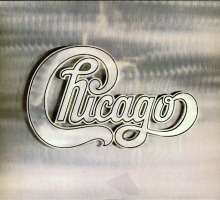 |
| CHICAGO II (1970) |
"Sounds" 1970: Die neue Doppel-LP von Chicago zeigt die Grenzen dieser Band ganz deutlich. Von Fortschritt gegenüber der ersten LP kann keine Rede sein. Die bereits auf "Chicago 1" vorgestellten Materialien werden hier nur perfekter und differenzierter geboten: Die kommerziellen Songs (wie "Wake Up Sunshine") sind noch kommerzieller, aber auch. die etwas unkonventionelleren Dinge wurden weiter ausgearbeitet. Neu ist eine lange Suite auf Seite 3, von Terry Kath und Robert Lamm komponiert, die mit klassischen Saiteninstrumenten, Flöten, Gesang und Posaune neue Aspekte bei Chicago zeigt. Doch was sich so avanciert gibt, ist beim näheren Hinschaun eine ziemlich seichte und wenig aufregende Angelegenheit. Anklänge an gehobene Unterhaltungsmusik, so wie's sich bei den besseren Rundfunkorchestern anhört, mehr nicht. Im dritten Teil der Suite scheint ein solches Standardwerk der gehobenen Unterhaltungsmusik, das "Concerto Di Aranjuez" von Rodriguez, Pate gestanden zu haben. Am besten ist Chicago immer noch in einfachen, harten Rocknummern wie auf diesem zweiten Album, das eine Ergänzung, aber keine Fortsetzung zum ersten ist, in Stücken wie "Poem For The People" oder "25 Or 5 To 4". |
 |
| THE CHICAGO TRANSIT AUTHORITY (1969) |
"Sounds" 1970: Diese Band hat mich bei meinem New York-Besuch diesen Sommer am meisten beeindruckt. CTA ist die erste bedeutende Pop Big Band, und nicht Blood, Sweat & Tears. Nur drei Bläser spielen mit einer Präzision, die ans Unfaßbare grenzt. Arrangeur (und Organist) Robert Lamm schreibt so aufregende Musik, daß dieses Doppelalbum nie langweilig wird. Und Lead-Gitarrist Terry Kath spielt die hinreißendsten Gitarrensoli, die man sich von einem Newcomer hören kann. Hören Sie nur sein Solostück "Poem 68". |
